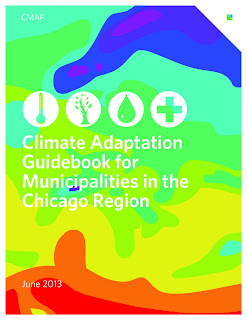The guidebook serves as a toolkit of sorts to help planners, administrators, and others formulate comprehensive plans and responses to current and future effects resulting from a changing climate. The guidebook addresses a number of water related issues and vulnerabilities, including flood protection and mitigation, meeting drinking water needs, and more.
Recent News
- Tomas Höök signing off as Illinois-Indiana Sea Grant director this summer
- Illinois-Indiana Sea Grant welcomes Stuart Carlton as the program’s new director
- Four Illinois and Indiana educators will set sail on Lake Michigan aboard EPA’s research ship
- Join IISG as a new pollution prevention outreach assistant
- Beach season means it’s time for lifesaving Lake Michigan water safety resources
IISG Instagram
📢 Show Your Support for Sea Grant! 📢
Continued federal funding for Sea Grant in FY26 is crucial, and we need your help to demonstrate the nationwide support for these essential programs.
🖊️ Sign the letter urging Congress to continue funding Illinois-Indiana Sea Grant and all 34 state Sea Grant programs:
🔗 https://forms.gle/7sPGHGyh8j8a7vfGA or link in bio

Exciting news! The call for sessions for the 2026 Emerging Contaminants in the Environment Conference has been extended!
We are excited to offer the opportunity to propose a speaker or panel session during the 2026 Emerging Contaminants in the Environment Conference April 28-29. The conference will feature traditional 15-minute presentations and a poster session on the latest in emerging contaminant research, policies, and outreach in the soil, water, and air.
The deadline to propose a session is September 30, 2025.
Learn more at go.illinois.edu/ecec or the link in bio

Stay safe and have fun this Fourth of July with these 5 water safety tips! Click the link in bio to learn more ways to keep yourself and others safe as you enjoy the Lake Michigan beaches this holiday.

Four science educators from Illinois and Indiana have been selected for the 2025 Shipboard Science Immersion on Lake Michigan July 7-13. The educators will spend a full week alongside researchers aboard the EPA research vessel Lake Guardian. Afterwards, they will bring Great Lakes science back to their classroom.
Learn more and meet the four incredible teachers representing Illinois and Indiana at the link in bio.


